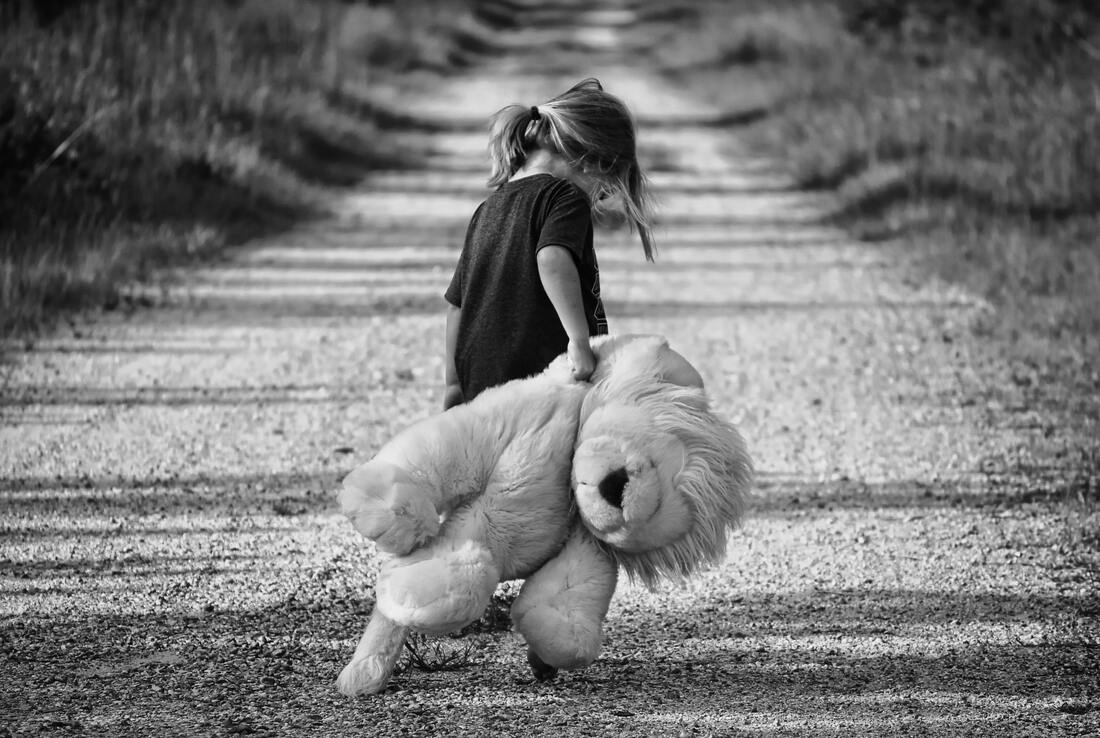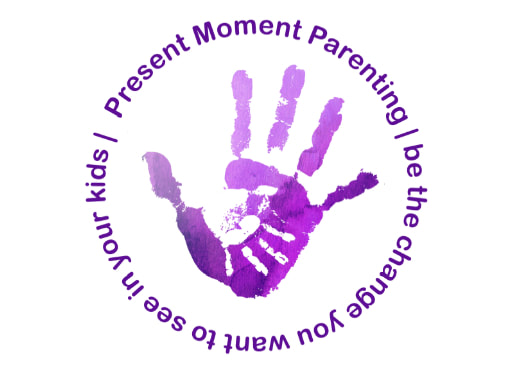Dear Mia,
I obtained your contact details from a Moms WhatsApp group I am on and understand that you may be able to assist and /or offer valuable insights.
I am a single mom with a three year old daughter (she turned 3 this month). She is my first and only child. She attends a playschool twice a week (started in January this year) and will be going to school 5 days a week next year. This morning, she cried her eyes out about not wanting to go to school. You could see genuine anguish at the thought of going to school. When asked why she doesn't want to go to school anymore, her response was that she is scared of the Hadeda birds (which by the way often fly over our home too). Eventually, the only way I could get her to go to school was to send her nanny with her to school "to protect her from the birds". And she took her favourite teddy with her.
She has one best friend (she proclaims) that lives next door in our complex. They've been playing together since about 6 months old as the two nannies arrange play dates in the afternoons. This same friend goes to the playschool with her. My daughter only wants to play with her and wants to emulate her in appearance and behaviour.
At school today, her nanny observed that she was fine during the indoor activities and participated within the group. When it was time to go outside for play in the garden, her "best friend" wanted to play with other friends and not her. She became despondent and withdrew from all the kids. Her teacher said this happened last week too. She feels rejected and cries.
My thinking is that the first time this feeling of rejection occurred last week, there were probably Hadeda's making their usual sound in the background and she therefore associates this negative feeling with the sound the birds make.
I would really appreciate some guidance how to handle this with her. It’s not about the other kids, I'd like to help boost her own confidence, her independence and individuality and get her to make more friends.
As someone who has spent, what feels like a lifetime, developing my own confidence and self-worth, I really don't want her to go through what I went through.
I do take responsibility for this, as I'm sure something I have done or said to her has inadvertently made her lose confidence in herself and is causing her to take this rejection to heart.
Thank you for sharing your daughters story with us. Firstly I want to implore you to go easy on yourself. It is admirable to take responsibility for things going on with your children but we have to be careful of slipping from responsibility into self-blame. There are a myriad of factors playing on our children every moment and every day and it is impossible as a parent to be on top of everything. Nor are we necessarily the cause of all their problems. A child's personality will mix with situational factors including our own past issues to mould their lives.
I'm going to make some points here about your daughters attachment needs and I want to be sure that you don't take this as something you have done wrong or that you are to blame for. Things are as they are. You are a single parent and honestly as a mother with an involved partner I am always in admiration of single parents. Parenting is hard work even as a team and you are facing this bravely on your own. You are doing the best you can. Know that. We're going to tweak that so that you can help your daughter even more, but just wanting to help and being aware that there is more going in here than just the usual difficult transition into school means you're already doing well. Awareness is always primary.
To answer your question I need to give you some background on the importance of attachment. So ideally a child will have a parent or both parents or another caregiver like a granny that will be their primary attachment. Love and attachment are essential survival needs. Think about a troop of monkeys... if one gets rejected by the troop they will die. So we want to attach. We want to belong. We want to please and emulate our primary attachments.
All other attachments should branch off from this initial relationship. Children trust people that you connect to and interact with and see these others as extensions of you to put it simply. This is why a child in a new environment like a school or party will cling to their primary attachment until they see it is safe to move outward from them.
Imagine living in a tribe where you feel safe and along comes another tribe. Children look to their elders, to those they trust to see how to behave. Are these other tribe members safe or are they a competing tribe who may need to be fought or fled from. It's about survival.
So often we push children that we consider to be shy into situations hoping that they will leave us and go out into the world. But they need to feel first that these others are an extension of their primary connection.
This need for love and connection with our primary person is paramount. It's life and death.
Now it sounds to me like for some reason your daughter has latched onto this little friend of hers and the friend has become her primary connection. More and more children are attaching to peers instead of parents as parents work longer hours and have less time and energy to attend to their children's emotional needs. Again, this is not a judgement on you. Your situation is as it is. And I promise that you are far from alone in this dilemma.
It isn't even that you need to spend 24/7 with a child to be their primary connection... if you've established the connection then you just need to create bridges between yourself and the other people caring for your child. This is completely doable. But first things first we need to re-establish that connection with you.
So I'm guessing that your time with her is limited in a day. But there will be small moments, most likely when you are attending to her physical needs like dressing and bathing and feeding, and these are the moments we want to monopolise on. The number one most important thing you can do in these times is to be present. Really really be there with her. Give her your full attention.
You're going to need to gather her in again, to win her over if you like, to woo her. It's so easy when we're busy and stressed and lost in our adult world's to just direct our children through daily tasks. I'm not saying you're doing this, but most of us are. We think it'll take too long if we get too involved, if we're playful, if we get into that slower child pace. But the truth is that often things go more smoothly when we do and we end up saving time instead AND connecting with our kids. But even if you're not feeling playful and you are genuinely rushed, it's important to first connect before doing. Being first. Then doing. So catch her eye. Be gentle with this if she's busy with something else. Never interrupt if you don't have to. But catch her eye. Before any instructions make sure you get a smile. This is about connecting first and then getting on with business. Treat your relationship with your daughter as a mindfulness meditation.
Being present is the key to all good relationships. Children are always present and they need us to meet them there. Feel that connection. If you can carve out special time for the two of you do. Snuggle up and read a book together or play a game or do whatever it is that she really enjoys. If it's at all possible to go away together for a week or even a weekend and just completely engage with each other then do that.
You're lucky really that you are picking this up now. Usually it's only in the teen years that parents realise they’ve lost their children to peers and it's much harder to get them back then. She's little. She still needs you for so many things. But her number one need is for love and connection and if she can't get enough of that from you then she must attach to someone else. Another child can never give her the full unconditional love she us craving. Peer attachment will always lead to insecurity and rejection issues. Peers are not mature enough to handle the responsibility of being someone else's primary connection. They can’t carry the relationship when the child is melting down, they can’t attend to the other’s emotional needs. On some level your daughter knows this and it is terrifying. If she loses that connection with her friend she feels as if she will die and maybe those Hadedas will come down and finish her off. Without that connection she’s vulnerable, and she knows that. She’s out of the troop and on her own, fending for herself against all the scary things in the world. And if her friend leaves her she doesn’t know how to get her needs met somewhere else. She’s become the clingy child but to the wrong attachment figure. Having your child cling to you is fine because you can be calm and patient and give her the love and security she needs to branch out into the world from this safe place. You won’t reject her. Even if she behaves like a monster, she will still be loved and accepted. This is not true in her friend relationship. So now she must mould herself to please this other child, and it will never be enough. Rejection is always just around the corner.
So gather her back in. Connect. Spend time together, as much as you are able. As soon as you are able to, plan to spend a large chunk of time together to reconnect. Just relaxed, friendly time where you fill her love cup right up. Then you can keep a thread of connection between you with little daily rituals that connect you, weekly chunks of time together, real presence in your essential routines. Also ensure that you create connections between yourself and everyone in her life – her nanny, the school teacher, her friends and their parents. Limit playdates unless you are going to be there.
You may find that before you can fully connect that she needs to release all that fear and sadness and anger that she’s holding right now. She may reject you initially. She may act out or be mistrusting of your efforts. But you must persevere. Let her cry or scream or throw things and just be the space to hold those emotions as they release. And then be there to gather her up again when she’s ready.
Once her relationship with you is strong she’ll be able to handle life’s ups and downs and the endless rejections that are a natural part of relationships. As The Beatles so aptly put it, “All you need is love”.
Thank you for listening. I trust that you will find the connection you need with your daughter and she will be strong and resilient in the face of a very uncertain world.
If you have any further questions, please feel free to email them to me at [email protected] and remember to join our Facebook group, Present Moment Parenting. Thank you, and good luck to you all on your parenting journey.
I obtained your contact details from a Moms WhatsApp group I am on and understand that you may be able to assist and /or offer valuable insights.
I am a single mom with a three year old daughter (she turned 3 this month). She is my first and only child. She attends a playschool twice a week (started in January this year) and will be going to school 5 days a week next year. This morning, she cried her eyes out about not wanting to go to school. You could see genuine anguish at the thought of going to school. When asked why she doesn't want to go to school anymore, her response was that she is scared of the Hadeda birds (which by the way often fly over our home too). Eventually, the only way I could get her to go to school was to send her nanny with her to school "to protect her from the birds". And she took her favourite teddy with her.
She has one best friend (she proclaims) that lives next door in our complex. They've been playing together since about 6 months old as the two nannies arrange play dates in the afternoons. This same friend goes to the playschool with her. My daughter only wants to play with her and wants to emulate her in appearance and behaviour.
At school today, her nanny observed that she was fine during the indoor activities and participated within the group. When it was time to go outside for play in the garden, her "best friend" wanted to play with other friends and not her. She became despondent and withdrew from all the kids. Her teacher said this happened last week too. She feels rejected and cries.
My thinking is that the first time this feeling of rejection occurred last week, there were probably Hadeda's making their usual sound in the background and she therefore associates this negative feeling with the sound the birds make.
I would really appreciate some guidance how to handle this with her. It’s not about the other kids, I'd like to help boost her own confidence, her independence and individuality and get her to make more friends.
As someone who has spent, what feels like a lifetime, developing my own confidence and self-worth, I really don't want her to go through what I went through.
I do take responsibility for this, as I'm sure something I have done or said to her has inadvertently made her lose confidence in herself and is causing her to take this rejection to heart.
Thank you for sharing your daughters story with us. Firstly I want to implore you to go easy on yourself. It is admirable to take responsibility for things going on with your children but we have to be careful of slipping from responsibility into self-blame. There are a myriad of factors playing on our children every moment and every day and it is impossible as a parent to be on top of everything. Nor are we necessarily the cause of all their problems. A child's personality will mix with situational factors including our own past issues to mould their lives.
I'm going to make some points here about your daughters attachment needs and I want to be sure that you don't take this as something you have done wrong or that you are to blame for. Things are as they are. You are a single parent and honestly as a mother with an involved partner I am always in admiration of single parents. Parenting is hard work even as a team and you are facing this bravely on your own. You are doing the best you can. Know that. We're going to tweak that so that you can help your daughter even more, but just wanting to help and being aware that there is more going in here than just the usual difficult transition into school means you're already doing well. Awareness is always primary.
To answer your question I need to give you some background on the importance of attachment. So ideally a child will have a parent or both parents or another caregiver like a granny that will be their primary attachment. Love and attachment are essential survival needs. Think about a troop of monkeys... if one gets rejected by the troop they will die. So we want to attach. We want to belong. We want to please and emulate our primary attachments.
All other attachments should branch off from this initial relationship. Children trust people that you connect to and interact with and see these others as extensions of you to put it simply. This is why a child in a new environment like a school or party will cling to their primary attachment until they see it is safe to move outward from them.
Imagine living in a tribe where you feel safe and along comes another tribe. Children look to their elders, to those they trust to see how to behave. Are these other tribe members safe or are they a competing tribe who may need to be fought or fled from. It's about survival.
So often we push children that we consider to be shy into situations hoping that they will leave us and go out into the world. But they need to feel first that these others are an extension of their primary connection.
This need for love and connection with our primary person is paramount. It's life and death.
Now it sounds to me like for some reason your daughter has latched onto this little friend of hers and the friend has become her primary connection. More and more children are attaching to peers instead of parents as parents work longer hours and have less time and energy to attend to their children's emotional needs. Again, this is not a judgement on you. Your situation is as it is. And I promise that you are far from alone in this dilemma.
It isn't even that you need to spend 24/7 with a child to be their primary connection... if you've established the connection then you just need to create bridges between yourself and the other people caring for your child. This is completely doable. But first things first we need to re-establish that connection with you.
So I'm guessing that your time with her is limited in a day. But there will be small moments, most likely when you are attending to her physical needs like dressing and bathing and feeding, and these are the moments we want to monopolise on. The number one most important thing you can do in these times is to be present. Really really be there with her. Give her your full attention.
You're going to need to gather her in again, to win her over if you like, to woo her. It's so easy when we're busy and stressed and lost in our adult world's to just direct our children through daily tasks. I'm not saying you're doing this, but most of us are. We think it'll take too long if we get too involved, if we're playful, if we get into that slower child pace. But the truth is that often things go more smoothly when we do and we end up saving time instead AND connecting with our kids. But even if you're not feeling playful and you are genuinely rushed, it's important to first connect before doing. Being first. Then doing. So catch her eye. Be gentle with this if she's busy with something else. Never interrupt if you don't have to. But catch her eye. Before any instructions make sure you get a smile. This is about connecting first and then getting on with business. Treat your relationship with your daughter as a mindfulness meditation.
Being present is the key to all good relationships. Children are always present and they need us to meet them there. Feel that connection. If you can carve out special time for the two of you do. Snuggle up and read a book together or play a game or do whatever it is that she really enjoys. If it's at all possible to go away together for a week or even a weekend and just completely engage with each other then do that.
You're lucky really that you are picking this up now. Usually it's only in the teen years that parents realise they’ve lost their children to peers and it's much harder to get them back then. She's little. She still needs you for so many things. But her number one need is for love and connection and if she can't get enough of that from you then she must attach to someone else. Another child can never give her the full unconditional love she us craving. Peer attachment will always lead to insecurity and rejection issues. Peers are not mature enough to handle the responsibility of being someone else's primary connection. They can’t carry the relationship when the child is melting down, they can’t attend to the other’s emotional needs. On some level your daughter knows this and it is terrifying. If she loses that connection with her friend she feels as if she will die and maybe those Hadedas will come down and finish her off. Without that connection she’s vulnerable, and she knows that. She’s out of the troop and on her own, fending for herself against all the scary things in the world. And if her friend leaves her she doesn’t know how to get her needs met somewhere else. She’s become the clingy child but to the wrong attachment figure. Having your child cling to you is fine because you can be calm and patient and give her the love and security she needs to branch out into the world from this safe place. You won’t reject her. Even if she behaves like a monster, she will still be loved and accepted. This is not true in her friend relationship. So now she must mould herself to please this other child, and it will never be enough. Rejection is always just around the corner.
So gather her back in. Connect. Spend time together, as much as you are able. As soon as you are able to, plan to spend a large chunk of time together to reconnect. Just relaxed, friendly time where you fill her love cup right up. Then you can keep a thread of connection between you with little daily rituals that connect you, weekly chunks of time together, real presence in your essential routines. Also ensure that you create connections between yourself and everyone in her life – her nanny, the school teacher, her friends and their parents. Limit playdates unless you are going to be there.
You may find that before you can fully connect that she needs to release all that fear and sadness and anger that she’s holding right now. She may reject you initially. She may act out or be mistrusting of your efforts. But you must persevere. Let her cry or scream or throw things and just be the space to hold those emotions as they release. And then be there to gather her up again when she’s ready.
Once her relationship with you is strong she’ll be able to handle life’s ups and downs and the endless rejections that are a natural part of relationships. As The Beatles so aptly put it, “All you need is love”.
Thank you for listening. I trust that you will find the connection you need with your daughter and she will be strong and resilient in the face of a very uncertain world.
If you have any further questions, please feel free to email them to me at [email protected] and remember to join our Facebook group, Present Moment Parenting. Thank you, and good luck to you all on your parenting journey.
If you enjoyed this podcast you will also enjoy these blog articles...





 RSS Feed
RSS Feed